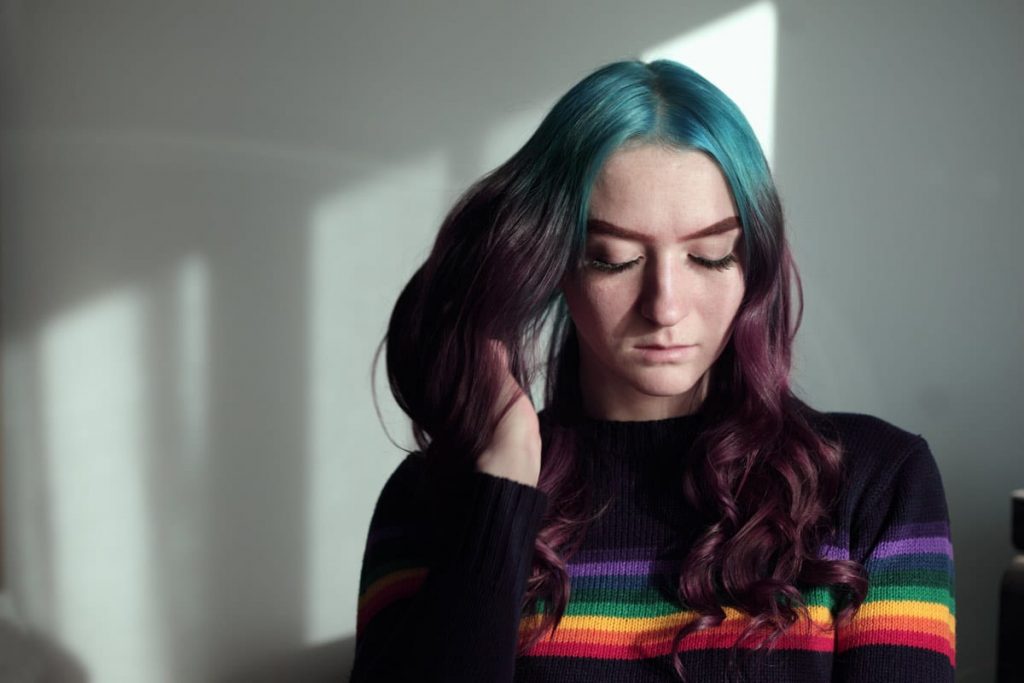Within the lesbian, gay, bisexual and transgender community (LGBTQ), substance abuse is at an all-time high and mental health problems are becoming more prevalent. According to a 2015 study by SAMHSA, “More than twice as many LGBTQ adults compared to heterosexual adults reported using drugs in the past year.” Mental health problems are also becoming increasingly prominent within the LGBTQ community, and substance abuse is making this issue worse.
Many factors contribute to such amounts of substance abuse, including stress, discrimination and limited access to treatment services. Here are a few ways you can help someone in need who is struggling to find treatment.
Rates of Substance Abuse in the LGBTQ Community
For vulnerable populations such as the LGBTQ community, it can be easy for them to misuse prescription drugs and become addicted to opioids. According to research from Duquesne University’s School of Nursing, “In 2015, 18.9 million people, or 7.1% of the population, misused prescription psychotherapeutic drugs in the past year.” Prescription drug misuse has become an epidemic in the United States, and marginalized communities are at a higher risk.
Although opioids are among the most abused substances, there are many other narcotics being misused and having dangerous consequences on minority groups such as the LGBTQ community. According to the National Survey on Drug Use and Health of 2015, adults belonging to a “sexual minority” (lesbian, gay, or bisexual) were more than twice as likely as heterosexual adults to have used an illicit substance in the past year. And more than 10 percent of sexual minority adults misused prescription pain relievers, compared to 4.5 percent of heterosexual adults. Cigarette smoking among LGB individuals in the U.S. is higher than among heterosexual/straight individuals, according to the Centers for Disease Control and Prevention (CDCP).
Alcohol use is staggeringly high among LGBTQ people as well, as (CDCP) have shown through their research. Their studies found that LGBTQ people are more likely to “not withhold from drug and alcohol use and continue heavy drinking into later life.” Hard drug use can also increase an LGBTQ person’s risk of getting HIV and other STDs. Methamphetamine is proven to be the most dangerous drug in common use, causing a multitude of health problems for users and contributing to a growing drug crisis in America.
Factors Contributing to Substance Abuse Rates
With such high substance abuse rates within the LGBTQ community, it makes you wonder what factors may be contributing to this problem. There are many reasons why people abuse drugs, including to fit in, rebel against family members, and cope with depression. High levels of stress may be a factor in why so many LGBTQ people abuse drugs and alcohol, which is a common issue in many lives within the community. Stress from unsupportive parents, unwelcoming environments and discriminatory situations occur for thousands of LGBTQ people every day.
High rates of homelessness within the LGBTQ community also contribute to the increase in substance abuse. Many LGBTQ people, often teens and young adults, are shunned by their family and kicked out of the house because of their sexual orientation or gender identity. According to research from Rutgers, “110,000 LGBTQ youth in the U.S. are homeless.” Many LGBTQ people fear discrimination when seeking out treatment and refuse to get help.
As many LGBTQ people suffer from mental health problems such as depression and anxiety, it can be incredibly difficult for them to beat their addiction and reach out for support. But there are several resources available to make the treatment process easier and more LGBTQ-friendly.
Treatment and Support Resources
If you or a loved one is struggling with substance abuse, there are many services you can use to help people with addiction get on the right path. Here are a few notable resources, which are specifically geared toward the LGBTQ community:
- Dynamic Recovery Center: This Florida-based rehab facility is specifically designed to provide treatment for the LGBTQ community. Their services include relapse prevention groups, health counseling and recovery management. They also have a 24-hour hotline to give support to those struggling.
- Monarch Shores: This treatment center is located in Southern California and offers treatment options created for those within the LGBTQ community. Their counselors are trained to deal with issues specific to LGBTQ individuals, such as discrimination based on their sexuality.
- The Center (Lesbian, Gay, Bisexual & Transgender Community Center): Found in New York City, this organization helps LGBTQ people in a variety of different ways, including drug and alcohol treatment and counseling services for LGBTQ youth and adults. They focus on making a positive impact in the LGBTQ community by offering health and wellness programs; arts, entertainment and cultural events; recovery, wellness, parenthood and family support services.
- Brattleboro Retreat: Based in Vermont, this service provider offers a program specifically built to help those within the LGBTQ community. They provide safety, support and professional counselors through their resource offerings.
These are just a small number of the LGBTQ-based treatment and rehabilitation services out there, making it easier to find treatment without experiencing discrimination. Substance abuse continues to have deadly consequences for the LGBTQ community, but it’s up to all of us to provide helpful resources and give support to those in need. With the right treatment and care, anyone can beat addiction and move forward in a positive direction.
If you or someone you know experiences mental health issues, it is important to seek help from a qualified professional. Our Resource Specialist can help you find expert mental health resources to recover in your community. Contact us now for more information on this free service to our users.
Author Bio: Nick Rudow is a freelance writer from Boise, Idaho and a graduate from the University of Montana’s Journalism School. His main writing focus is on issues affecting the LGBTQ community and mental health treatments.
Photo by Sharon McCutcheon on Unsplash
The opinions and views expressed in this guest blog do not necessarily reflect those of www.rtor.org or its sponsor, Laurel House, Inc. The author and www.rtor.org have no affiliations with any products or services mentioned in this article or linked to herein.
Recommended for You
- Why Eating Disorders in Men Are Often Missed - July 3, 2025
- No More Silence: The Opioid Epidemic’s Alarming Impact on Women - June 30, 2025
- The Hidden Impact of Repressed Memories on Mental Health and How to Heal - June 26, 2025





